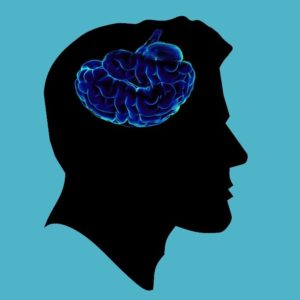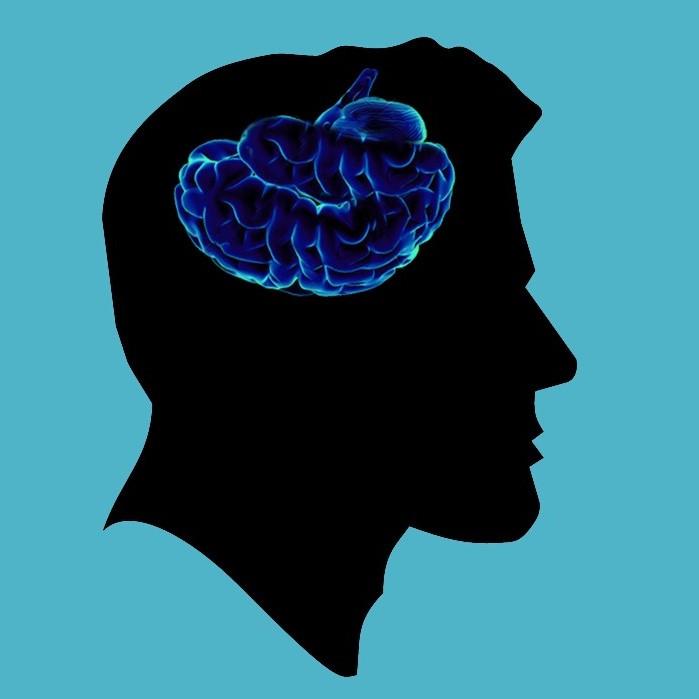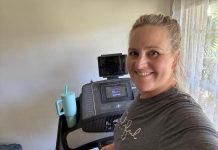My husband and I joke that when we got married, I owned four of our kids and he owned one, now together we own all five. Yes, we’re a blended family, but we have the unusual pleasure of having sole legal and physical custody of all of them. That being said, merging our two families in to one was a bit of a challenge at first. We had different bedtime routines. Different holiday traditions.
Oh, and their new daddy’s brain was upside down.
Well, at least that’s how his (then) 9 year-old daughter explained it.

I met my husband right after he returned from his second tour in Iraq. During his time in theater, he ended up with six LOD (line of duty) concussions. Six times he had been knocked unconscious. Six times he had hit his head. Six times he did irreparable damage to his brain. Well, at least six times on paper – probably more. It didn’t take long after his return for the VA to diagnose him with both PTSD (post-traumatic stress disorder) and TBI (traumatic brain injury).
So, when you’ve been gone a year in combat, and you come home banged up and bruised, and you have a couple of surgeries, and you’re trying to put your life back together, it just makes sense to add a wife and four new kids (including a baby) to the mix, right?
Sure!
Most people understand (to some degree) what PTSD is. Before I met my husband, I thought it was nightmares and flashbacks and jumping when you hear a car backfire. And TBI? Well, I’ve seen people with brain injuries before. People in wheelchairs who can’t feed themselves or speak clearly. Or sometimes they wear those halo contraptions around their heads and necks. In my limited knowledge, that’s what I thought a TBI was.
Wow, was I wrong.
Learning about PTSD and TBI was overwhelming and confusing, at best.
I would study (overanalyze) his behavior and words. Because I didn’t know him before he deployed, I had nothing to compare his behavior to. And thanks to the Army declaring him “unemployable,” we got to spend 24 hours a day together, 7 days a week, giving me all the time in the world to scrutinize his every move and drive myself crazy in the process.
My husband has only a handful of memories from the time before his senior year in high school. He doesn’t remember his friends growing up. He doesn’t remember what it was like to be a kid at all. He doesn’t remember things that he used to do with his siblings or what his favorite foods were or who he had a crush on in 7th grade. All of that is gone. He also has blocks of time missing in his adult life and sometimes he forgets conversations. He sees bright lights when he tries to sleep, and he can’t handle hearing a child cry (which explains why our baby is so stinkin’ spoiled). And the concussion headaches are ongoing.
Eventually, I started to notice a pattern in the way he would react to certain triggers. I could tell the difference between his TBI and his true self. And while we struggled in our relationship, and he struggled in learning to navigate his “new normal,” I had no idea how to explain it to our children.
Then one day our daughter put it out there for all of us to understand: Daddy’s brain is upside down.
It’s definitely not a realistic explanation of what had occurred. It’s not even a very good metaphor, but it worked for us. And our kids accepted it.
I don’t want to trivialize our kids’ experience during this time period, and I pray that they don’t end up needing years of counseling because of our many mistakes, but for some reason, just reminding them that Daddy’s brain was “upside down” was enough to satisfy their curiosity on the bad days.
While some parents like to have big, you’ll-remember-this-forever conversations about important events or announcements, I’ve always subscribed to the theory that your children will only wig out if you wig out, so if you’re chill about it, they’ll be chill about it.
I have teenagers. We say chill a lot.
So, we never had a big “this is what happened to Daddy” conversation. We talked about things as they came up and answered questions as they were asked. As they’ve grown older, they’ve asked deeper questions, and we’ve answered in more detail. There have been a few times that I’ve had to pull the kids aside and remind them that Daddy still has upside-down-brain days and to not read anything else into his words or behavior. And he’s reached a place of self-growth where he can say, “I’m having a day that nothing comes out right.”
And for us, that’s good enough.
Actually, it’s more than enough. Because while PTSD and TBI are hard, we know we are the lucky ones.
We are blessed that he returned home.
We are blessed that he chose us to become a family. And we are blessed that we are together.
And that’s the biggest blessing of all.











